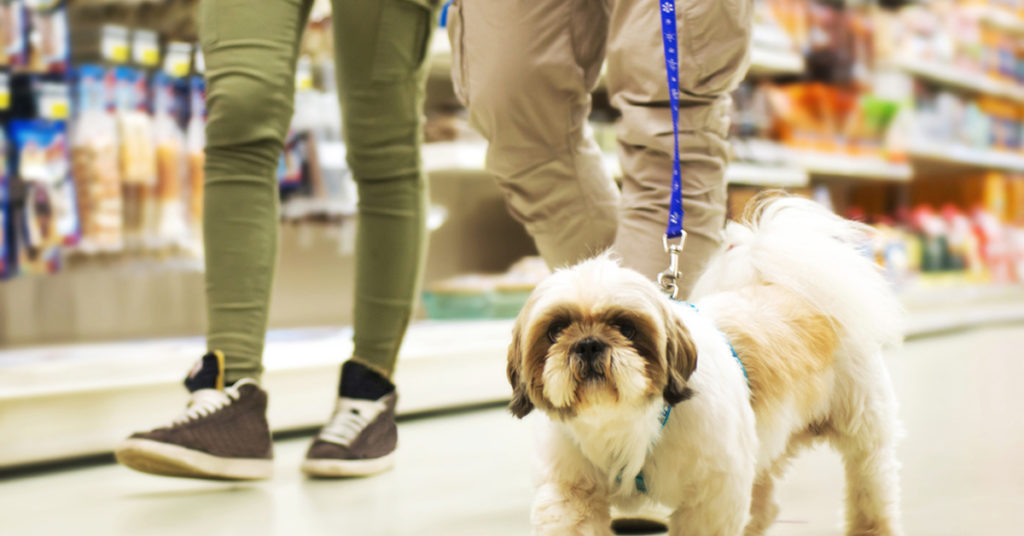Pet food parents’ buying behaviors are changing rapidly—from the products they buy to where they buy them.
In this blog, we look at why a private label pet food program is so appealing to today’s retailers.
The Pet Food Marketplace
In Q2 of 2020, e-commerce accounted for 16.1% of total retail sales. This isn’t surprising as online shopping grows every year. But in 2020, numbers seemed to grow a little faster. And the pet food market was no exception: Pet food e-commerce interest grew to 28% during the 2020 pandemic.
But despite the e-commerce growth, physical stores should still be top-of-mind for pet food brands.
Indeed, with the exception of Amazon, the top 10 retailers in the United States are brick-and-mortar stores. In-store purchases still bring in more profit than an e-commerce order – especially when you factor in online shipping and return costs. And in the current environment, many e-commerce sites are struggling to meet delivery times.
But most importantly, the cold hard truth is that most Americans still prefer in-store shopping.
The above data points confirm that while you can’t ignore the omnichannel experience, you should never lose sight of brick-and-mortar. In many ways, the aisle is where omnichannel truly begins.
Retail brands must do more to get more out of their existing in-store customers. They must inspire a whole new kind of brand loyalty.
This means building a private label pet food program.
The Case for Private Label
Kirkland. Simple Truth. Market Pantry. Retailers like Costco, Kroger and Target have made investments in developing house-brand lines that encompass everything from grocery staples and hygiene products to boxed wine.
Kroger’s private brand operation raked in $23 billion in 2017 – up from $15 billion in 2012. That’s more than a quarter of its total grocery sales excluding fuel and pharmacy. Even the king of e-commerce, Amazon, made the strategic play to purchase Whole Foods, along with its well-known 365 product line.
It’s clear that private label works – so where does pet food fit into the mix?
Currently, big box stores such as Target and Walmart maintain a big piece of the pie among dog and cat food purchasers, and grocery stores are close behind.
For traditional grocers looking to advance in the pet food market, look at the success of Rachel Ray’s nutrient-packed, supermarket-friendly Nutrish® brand for some insights.
As the fastest growing pet food brand of 2016, Nutrish® broke new ground by offering up a “premium,” on-trend product in a mass retailer setting. This sweet spot is the best of both worlds for consumers: In fact, many people who shop at pet-focused retailers say they would buy a similar product from a grocery store.
Plus, even in the heart of the pandemic, pet owners tended to opt for online delivery or shopped at stores where they were able to safely socially distance (or places they already had to shop for essentials)—like supermarkets.
Despite some shifting consumer behaviors, brick-and-mortar retailers that sell pet products are still key, with $17 billion spent on pet food in these channels alone.
So, what’s in it for you – the retailer?
The Benefits of Private Label Pet Food
Private label pet food offers a myriad of quantitative and qualitative benefits to retailers.
- Lower Costs: While all big business moves require an investment, private label pet food is a lower-cost one—especially compared to purchasing national brands to resell at your store. Sales and marketing can also be handled on a smaller scale.
- Higher Profit Margin: With costs in check, retailers enjoy a higher return on investment. Plus, don’t have to pay a portion of your sales to the supplier or name brand – it’s all yours.
- Less Risky R&D: When partnered with a pet food manufacturer, retailers have the leeway to experiment with new products while continuing to offer more essential items at a steady price.
- Exclusivity & Brand Loyalty: Becoming the exclusive source of a popular, consistently cost-effective line of products can facilitate healthy pricing competition among name-brand alternatives while inspiring a new kind of brand loyalty among customers.
- Control: Product factors like formula, size and package design to sales factors like price and distribution are all in your hands. And you have more flexibility to pivot in the marketplace.
Conclusion
The private label path offers lower costs, bigger margins and more room for product innovation. Simply put, it is the best option for retailers that want to stay competitive and win over in-store customers.
Alphia helps private label brands develop market-leading pet food from concept to distribution. Let us know about your pet food needs.
